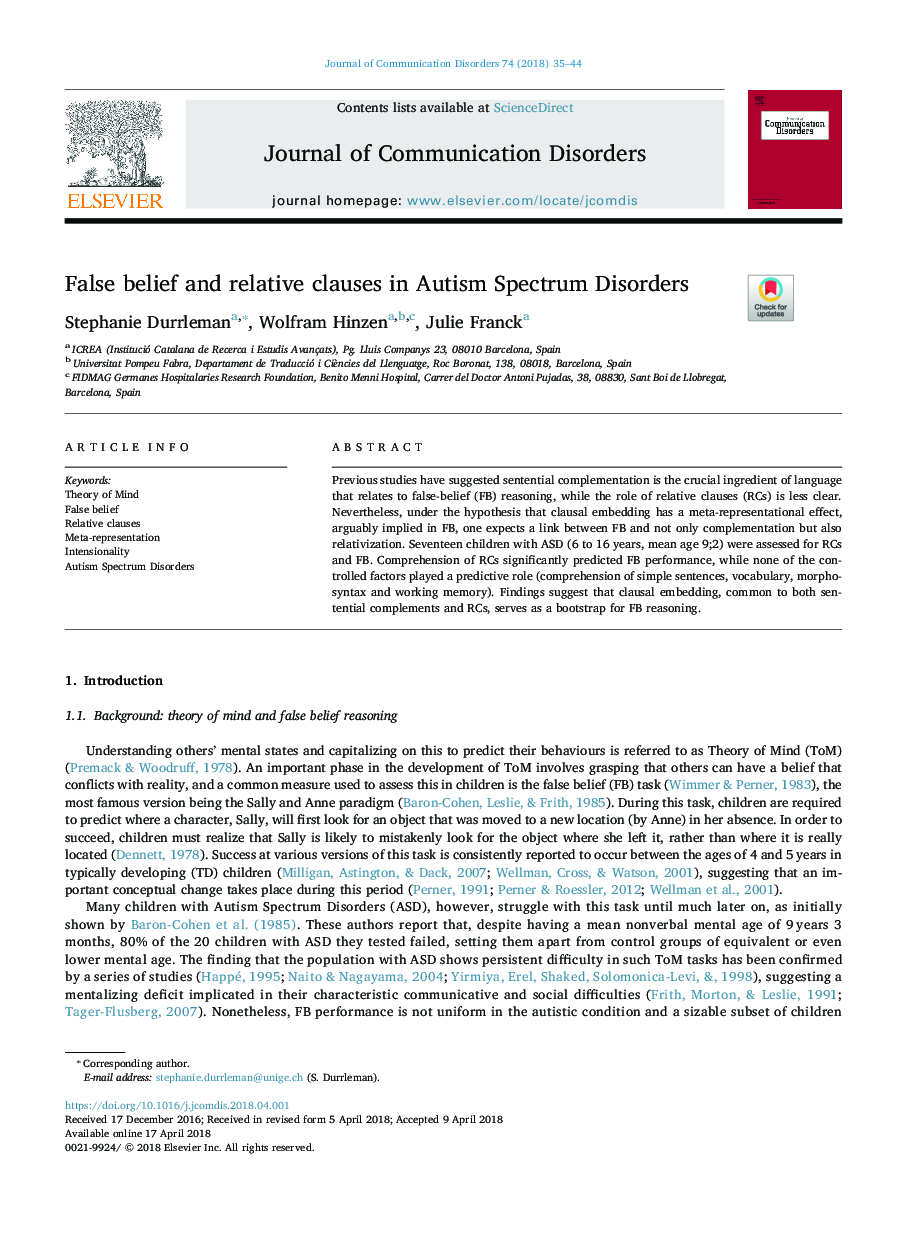| Article ID | Journal | Published Year | Pages | File Type |
|---|---|---|---|---|
| 7267955 | Journal of Communication Disorders | 2018 | 10 Pages |
Abstract
Previous studies have suggested sentential complementation is the crucial ingredient of language that relates to false-belief (FB) reasoning, while the role of relative clauses (RCs) is less clear. Nevertheless, under the hypothesis that clausal embedding has a meta-representational effect, arguably implied in FB, one expects a link between FB and not only complementation but also relativization. Seventeen children with ASD (6 to 16 years, mean age 9;2) were assessed for RCs and FB. Comprehension of RCs significantly predicted FB performance, while none of the controlled factors played a predictive role (comprehension of simple sentences, vocabulary, morpho-syntax and working memory). Findings suggest that clausal embedding, common to both sentential complements and RCs, serves as a bootstrap for FB reasoning.
Related Topics
Life Sciences
Neuroscience
Cognitive Neuroscience
Authors
Stephanie Durrleman, Wolfram Hinzen, Julie Franck,
